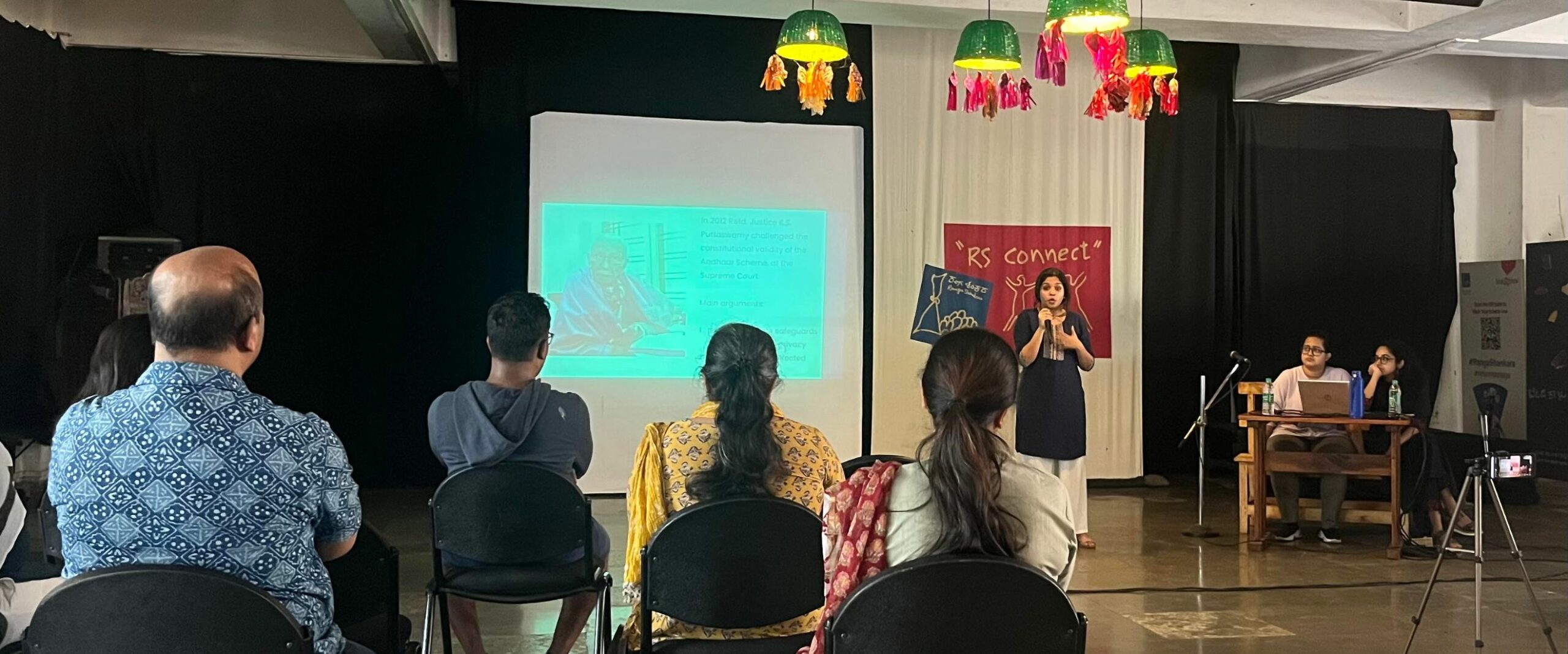Analysis
The Right to Privacy in Our Republic: A Talk at Ranga Shankara
5 years after the Supreme Court recognised privacy as a Fundamental Right, we discussed how the right came to be, and what it means.

On Saturday (September 3rd, 2022) SCO, in collaboration with RS Connect, Rangashankara, conducted a special talk on the Right to Privacy. 5 years after the Puttaswamy I Judgment recognised privacy as a Fundamental Right, we discussed how the right came to be, and what the right really means for citizens.
Gauri Kashyap from the SCO traced the beginnings of Puttaswamy I, with the announcement of the Aadhaar Scheme in 2010. Justice Puttaswamy challenged the constitutionality of the Scheme on the grounds that the Scheme had no safeguards to protect the biometric and demographic data collected. Further, he argued that welfare schemes were a fundamental right—making access to its benefits contingent on producing a specific Government ID was unlawful.
Gauri then discussed the arguments made in the case. She pointed out the Government’s argument that privacy was not recognised by the Constitution of India, 1950. Further, it examined the Union government’s claim that the Constitution framers had deliberately omitted privacy from the Constitution. Constituent Assembly Debates on privacy show that Constitution framers were concerned about the right to privacy interfering with investigative powers of the police authorities. 68 years after these concerns were raised in the Constituent Assembly, these issues resurfaced in Court. The Union relied on similar concerns expressed in M.P Sharma v Satish Chandra, and Kharak Singh v State of UP. These cases were brought up in Court to explain that privacy was not protected in Part III of the Constitution, which dealt with Fundamental Rights.
Finally, the talk focused on the unanimous 9-Judge Bench Judgment which recognised that privacy was critical to live a life of dignity, which was protected under Article 21 of the Constitution. The privacy Judgment created the basis for the decriminalisation of adultery and same-sex relationships. However, a data protection law, which the Judgment directed the Union to frame, has not come to fruition.
In the question-answer session that followed, audience members enthusiastically engaged with the issues of privacy, concerns on data collected through Aadhaar, and the developments in understanding privacy since the 2017 Judgment.